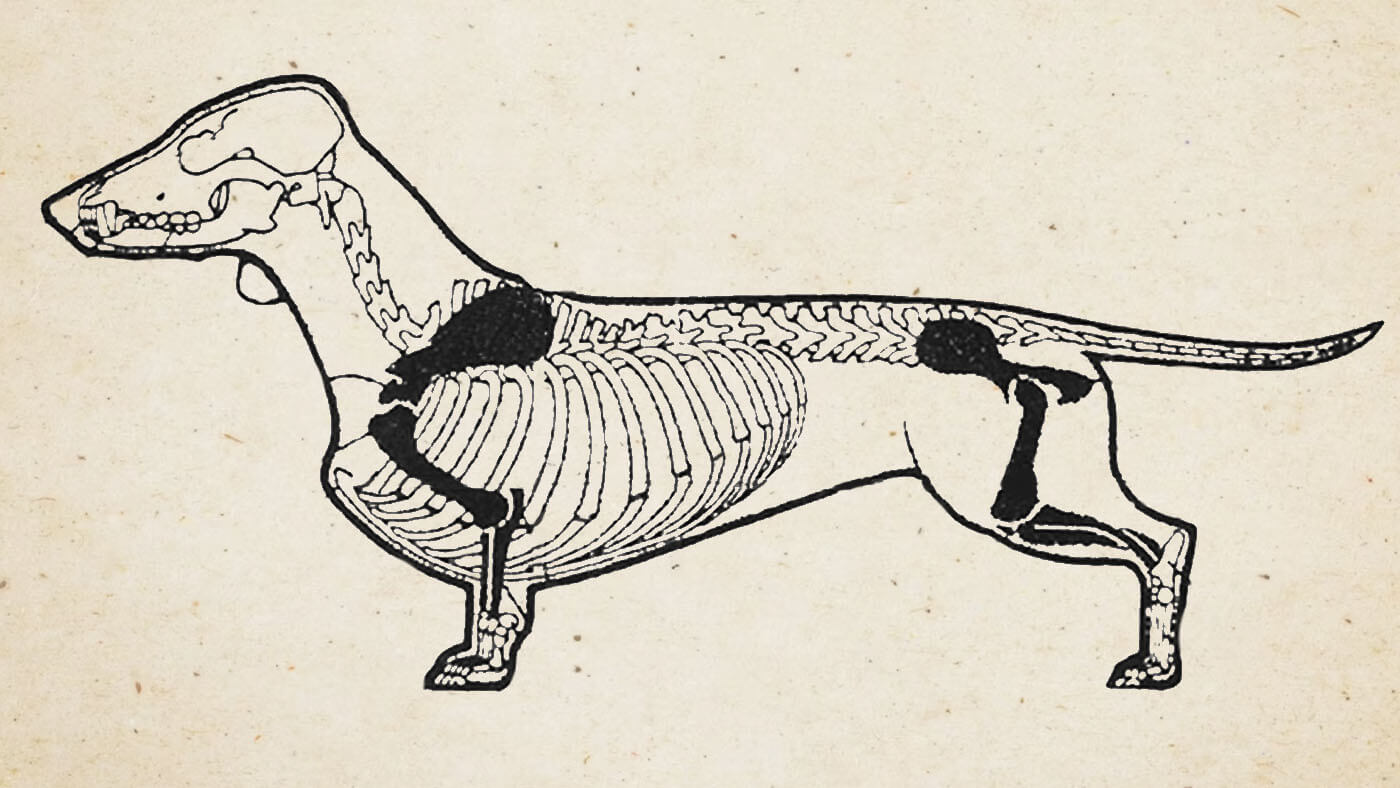Intervertebral disc disease (IVDD) is a serious health issue that affects dachshunds, one of America's most popular breed of dogs. IVDD* occurs when the cushion-like discs that sit between the vertebrae in the spine rupture or bulge, causing pressure on the spinal cord, which can lead to pain, weakness, and even paralysis. It's similar to slipped discs in humans.
Dachshunds are particularly prone to IVDD due to their long and narrow bodies, which put extra strain on their backs. In fact, it is estimated that up to 25% of dachshunds will develop some form of IVDD in their lifetime, with a greater percentage suffering from less severe back pain that is unrecognized and untreated.
Up to 25% of dachshunds will develop some form of IVDD in their lifetime
Symptoms of IVDD in dachshunds can vary depending on the severity and location of the affected discs. Some common signs include difficulty walking or standing, reluctance to jump or climb stairs, loss of bladder or bowel control, and yelping or crying when touched or picked up.
If you suspect that your wiener dog may be suffering from IVDD, it is important to seek veterinary care as soon as possible. Treatment options for IVDD may include medication, rest, physical therapy, or even surgery in severe cases.
Preventing IVDD in our silly sausage dogs can be challenging, but there are some steps you can take to minimize the risk and can help reduce the likelihood of IVDD:
- Keeping your doxie at a healthy weight
- Providing regular exercise and playtime for your weenie dog
- Avoiding activities that put excess strain on their backs (such as jumping from heights or rough play).
IVDD is a serious health concern for dachshunds that requires prompt veterinary attention. While it may not always be preventable, taking proactive steps to minimize the risk can help keep your funny furry friend happy, healthy, and mobile for years to come.
For more information on IVDD, visit Dodgerslist.com, a leading educational resource for the IVDD community.
*The information presented in this article is for educational and informational purposes only and does not constitute or substitute for the advice of your veterinarian.


